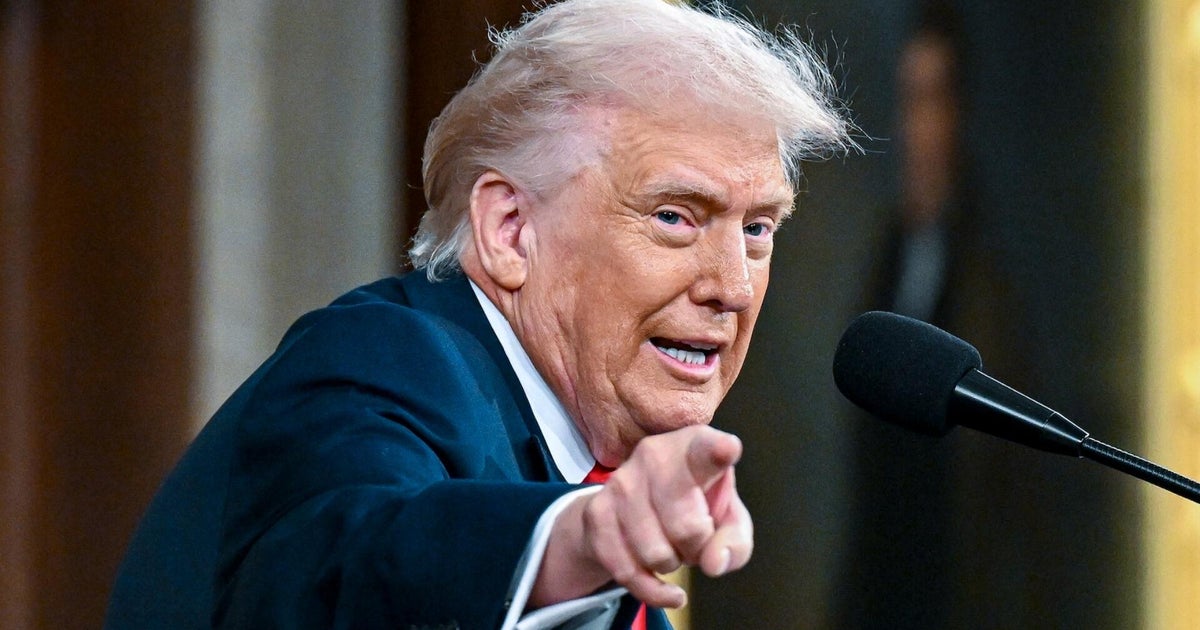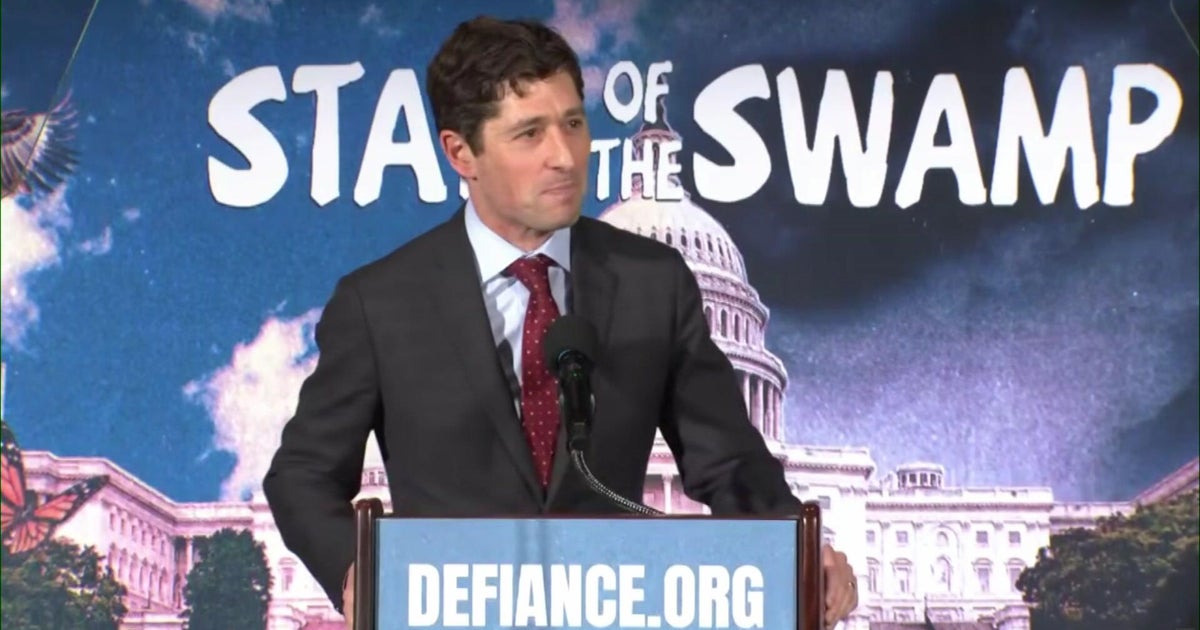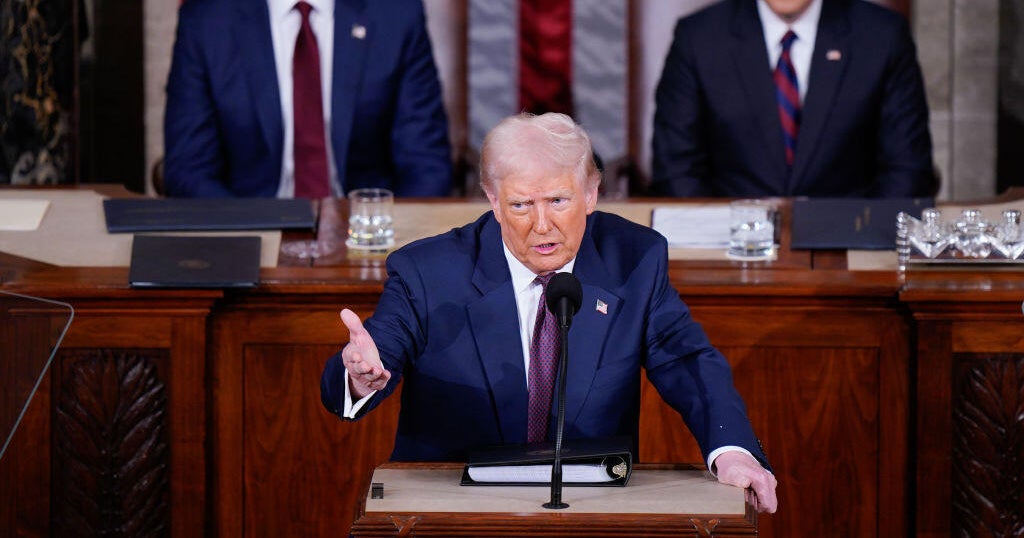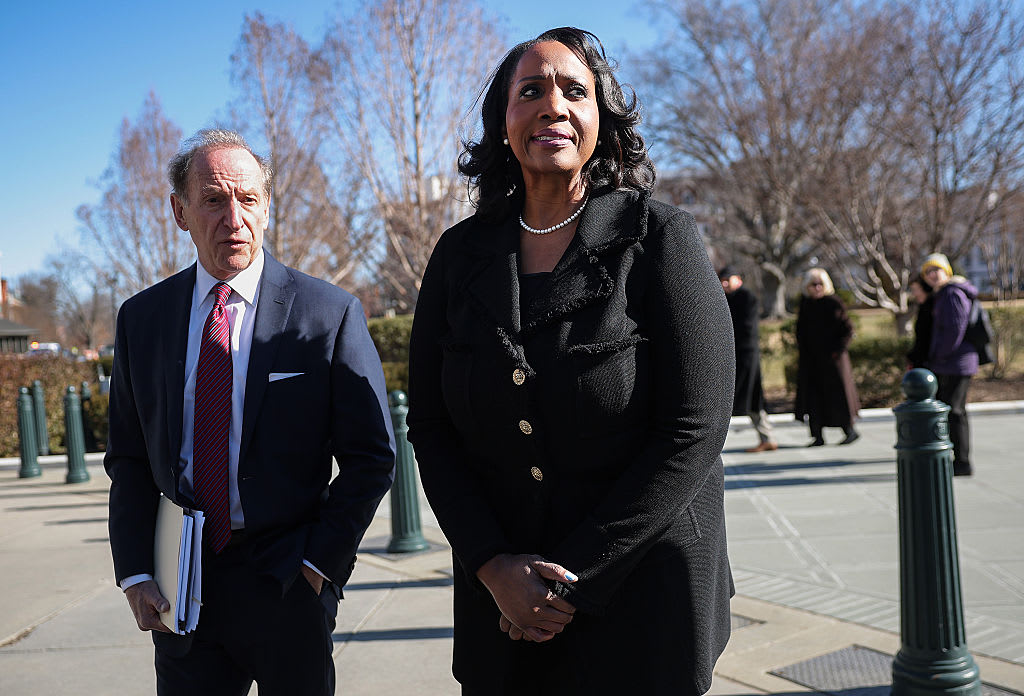Trump's Fed pick Stephen Moore faces scrutiny -- and not only for his economic ideas
With President Donald Trump tweeting that former GOP presidential candidate Herman Cain is out of the running for a seat on the Federal Reserve Board, the focus is shifting to his other potential Fed pick, conservative commentator Stephen Moore. It's not only Moore's economic ideas that are getting bad reviews.
Moore, who has worked at the conservative Heritage Foundation and advised Mr. Trump on his tax overhaul, is coming under fire for columns he wrote more than a decade ago at the National Review. In one piece, he lambasted the inclusion of women in sports, railing against women beer vendors and commentators -- unless they were as attractive as journalist Bonnie Bernstein -- as well as women's basketball and co-ed sports, among other targets.
Women participating in playground sports and recreational leagues was a "travesty," he wrote in one 2002 column. Moore also took aim at "radical feminists" who, in his view, had ruined college campuses, asking "if they were so oppressed and offended by drunken, lustful frat boys, why is it that on Friday nights they showed up in droves in tight skirts to the keg parties?"
Granted, the columns were penned with a tongue-in-cheek tone, as Moore noted in his defense this week. Still, one of the Federal Reserve's top goals is to ensure full employment. It's not exactly a new phenomenon that maximum U.S. employment relies on the labor force participation of women across all industries and roles -- including sports.
"Stephen Moore is clearly unfit to make economic decisions on behalf of women and should not be nominated to the Federal Reserve board," Sen. Jeanne Shaheen, a Democrat from New Hampshire, wrote on Twitter, pointing to his comments about women in sports.
Other lawmakers questioned whether Moore's beliefs about women in sports would extend to other realms of work.
"Does Stephen Moore think women can also sit on the @federalreserve, work as economists, or be CEOs?" asked Congresswoman Jennifer Wexton, a Democrat from Virginia. "Gender inequality in the financial industry is a real problem. Misogynists like Stephen Moore on the Fed will only make it worse."
Moore told CNN his column was a "spoof" and that he has "a sense of humor."
President Trump tweeted a month ago that he was picking Moore for the Federal Reserve Board, but has yet to formally nominate him. White House spokesman Hogan Gidley was asked by CBS News on Tuesday whether the president still has confidence in Moore for the Fed and whether he's spoken to him lately. "I don't know that he's spoken with him," Gidley said, "but we don't have the announcement yet on that front."
Not in Kansas anymore
Beyond Moore's views on women in sports, his economic theories have also sparked scrutiny, including his support of the gold standard and cutting taxes to stimulate economic growth.
On the latter idea, Moore is credited with advising Kansas on its ill-fated experiment to dramatically cut taxes in an effort to spark economic growth, and he also advised Mr. Trump on the GOP's tax cuts that went into effect last year.
In Kansas, the trial backfired, with the state lagging the nation's average job growth after it slashed taxes. With less tax revenue, the state cut education and infrastructure funding. In 2016, state lawmakers rolled back the tax cuts, with experts generally viewing the experiment as a failure.
If that idea sounds familiar, that's because the plan embodied the theory of trickle-down economics, or the idea made popular by President Ronald Reagan that cutting taxes for the rich and corporations will "trickle down" to the average worker in the form of faster economic growth and wage gains.
But there's not much independent evidence to demonstrate that the theory delivers the benefits its supporters claim. The International Monetary Fund, for its part, has pointed to trickle-down economics as a cause for widening income inequality.
A return to the gold standard
Moore advocated a return to the gold standard when he advised Cain on economic policies during his failed presidential campaign. The gold standard, which ties the dollar to the value of gold, was dropped in 1971 under President Richard Nixon, with economists generally viewing the U.S. economy as stronger and more flexible as a result.
Even so, it's unlikely that Moore's support of the gold standard would pass the sniff test at the Federal Reserve. For one, Moore would be one "on a committee of nineteen (seven members of the board of governors and 12 reserve bank presidents)," notes Barclays analyst Michael Gapen in a research note. "The rules and norms of the institution are strong, and the legacy of an independent Federal Reserve will be difficult to change."
IRS: He owes $75,000 in unpaid taxes and penalties
Elsewhere, Moore is fighting a $75,000 debt to the IRS. A federal tax lien was filed against Moore in January 2018, saying the government had won the judgement against him.
The Associated Press reported in March that Moore has a $75,328 lien for unpaid taxes, and for penalties and interest that may accrue from 2014, according to court records in Montgomery County, Maryland.
The White House declined to comment. Moore did not immediately return a request for comment.
Moore's wife, Anne Carey, told Bloomberg News that Moore accidentally claimed the sum of alimony and child-support payments to his former wife, when only alimony is deductible. Because Moore had moved, he never received notifications from the IRS after the agency audited the return, she said.
"It was not an attempt at defrauding the U.S. government," Carey told Bloomberg. She added that the couple had overpaid their taxes by about $50,000 over the past few years and plans to seek a refund when they file their 2018 returns.
Carey said the couple has resolved to pay the lien as quickly as possible but will continue to dispute the IRS ruling.



